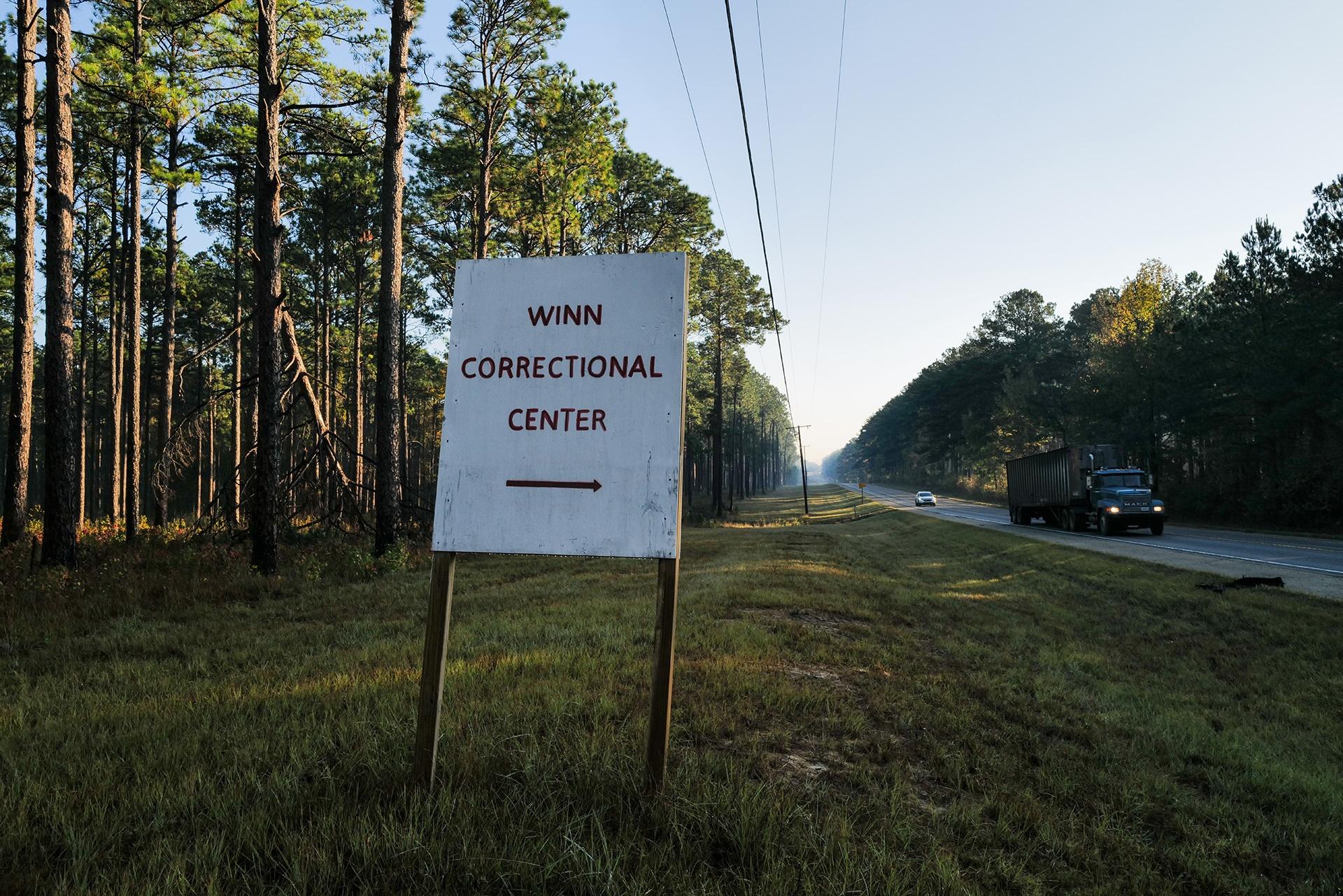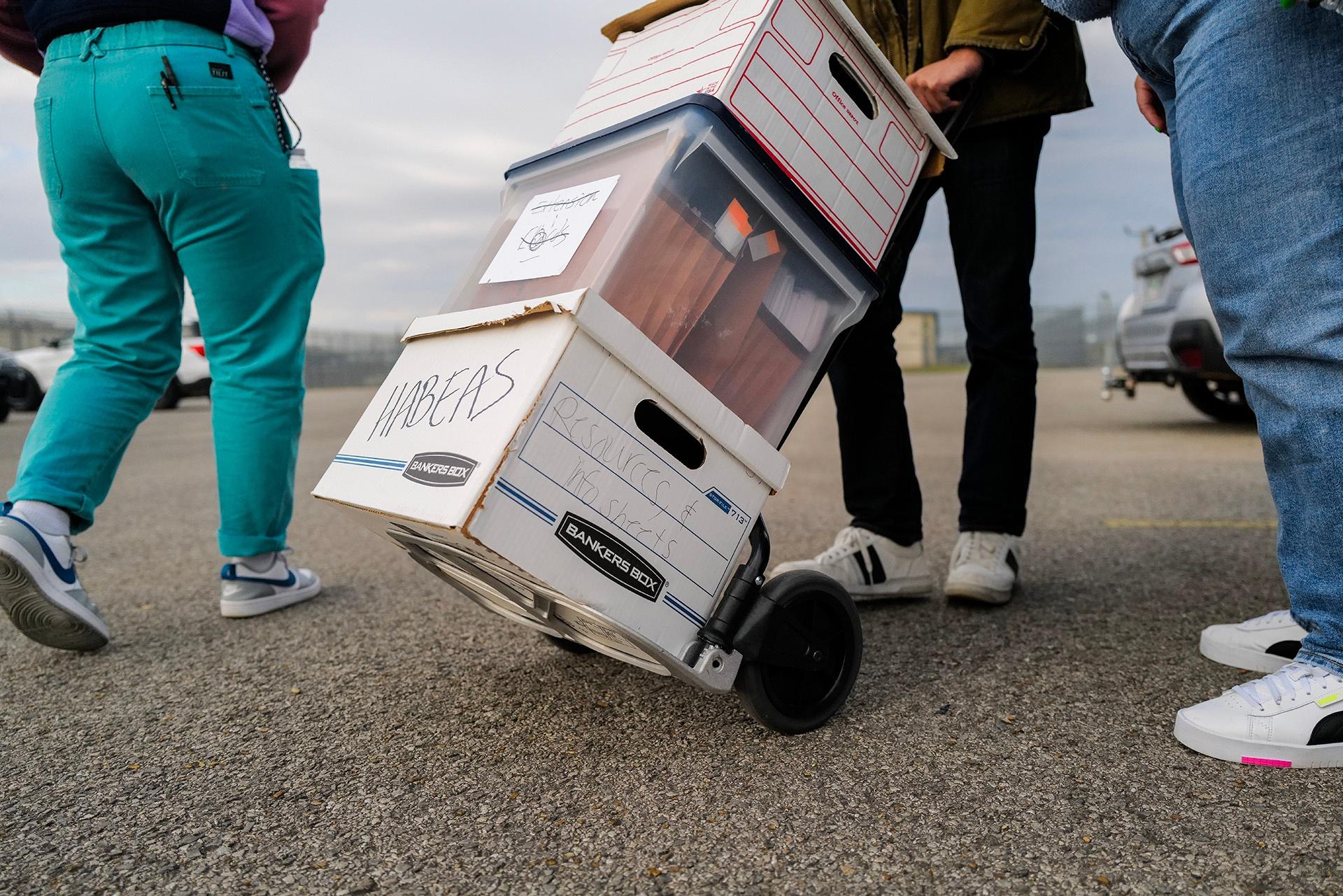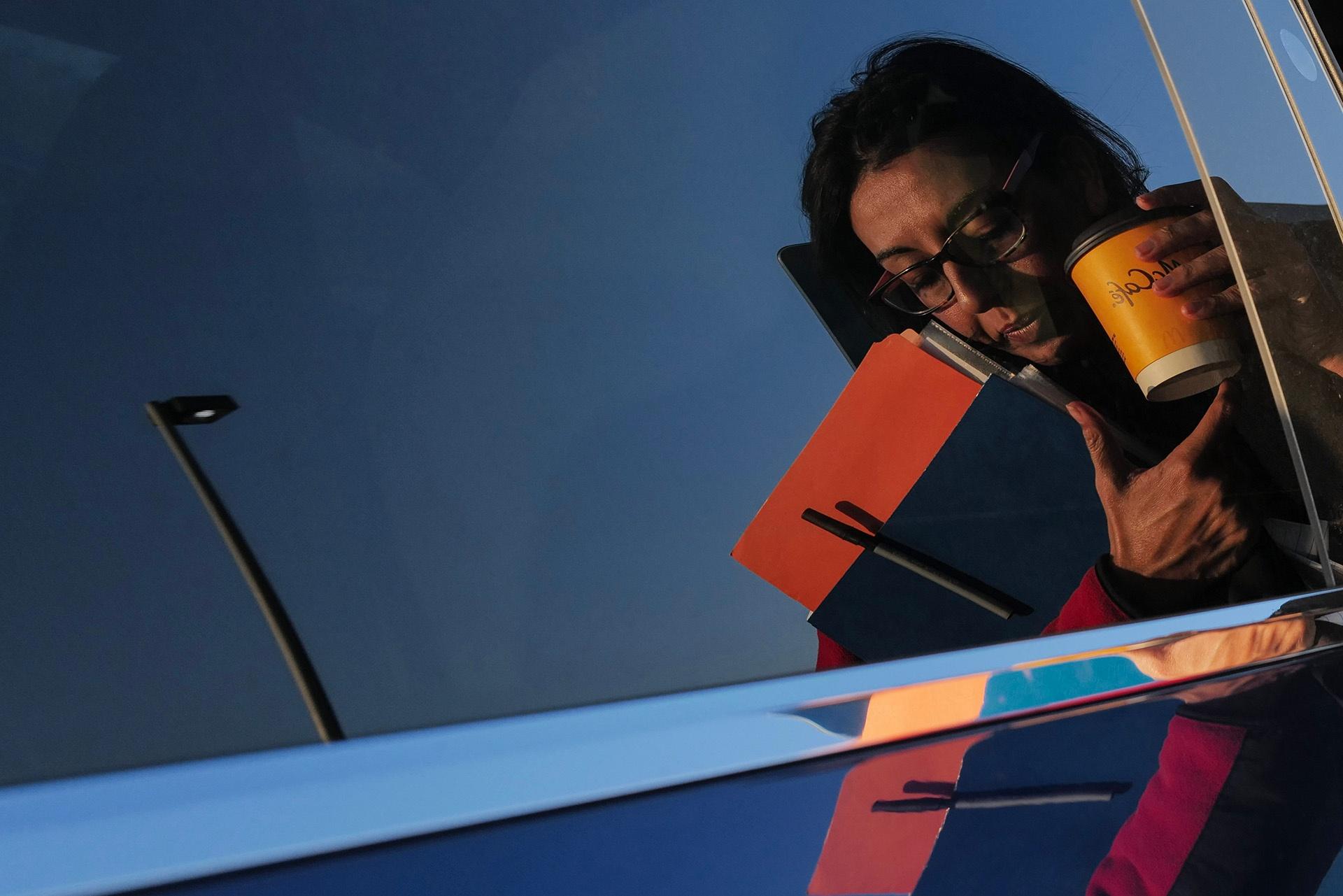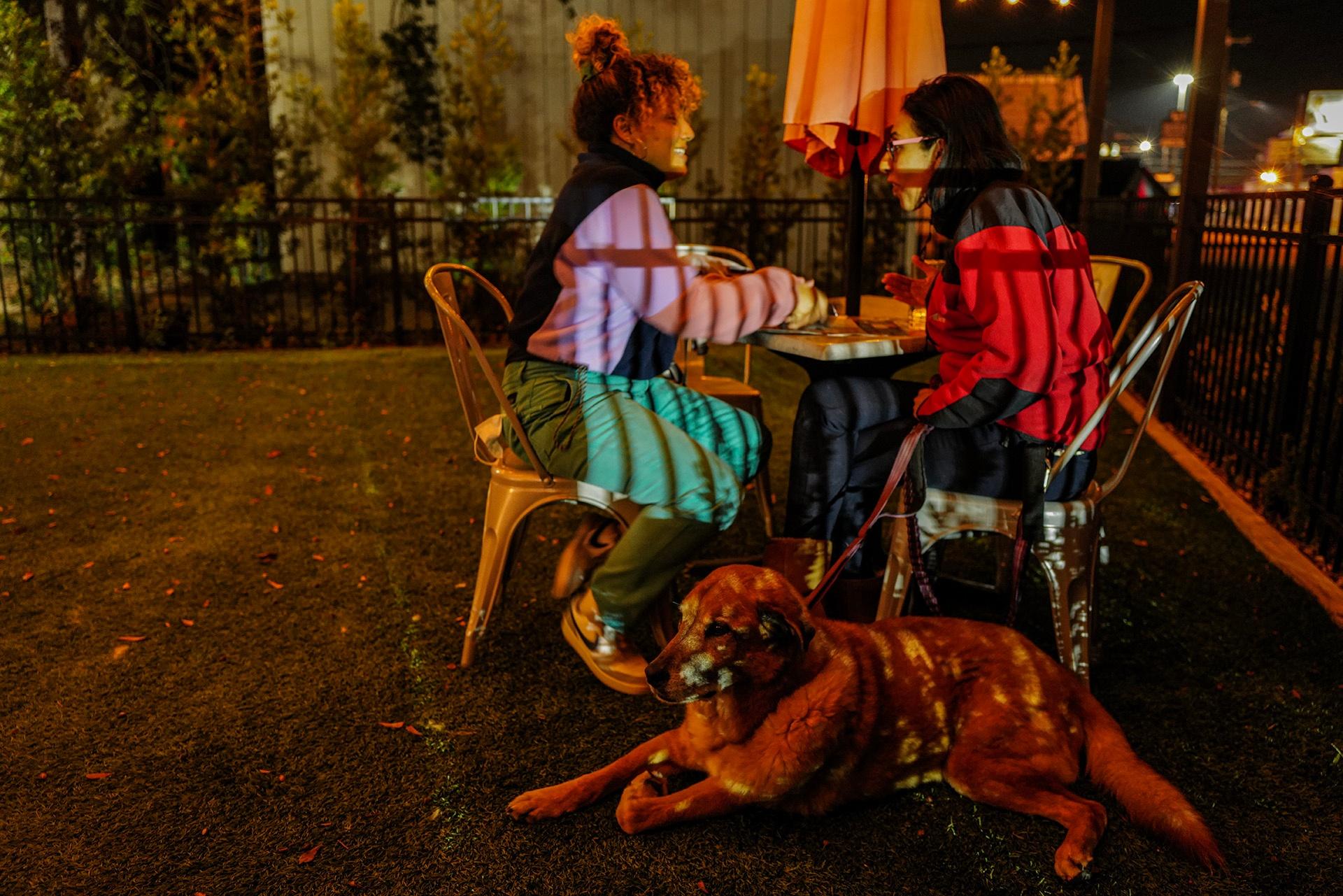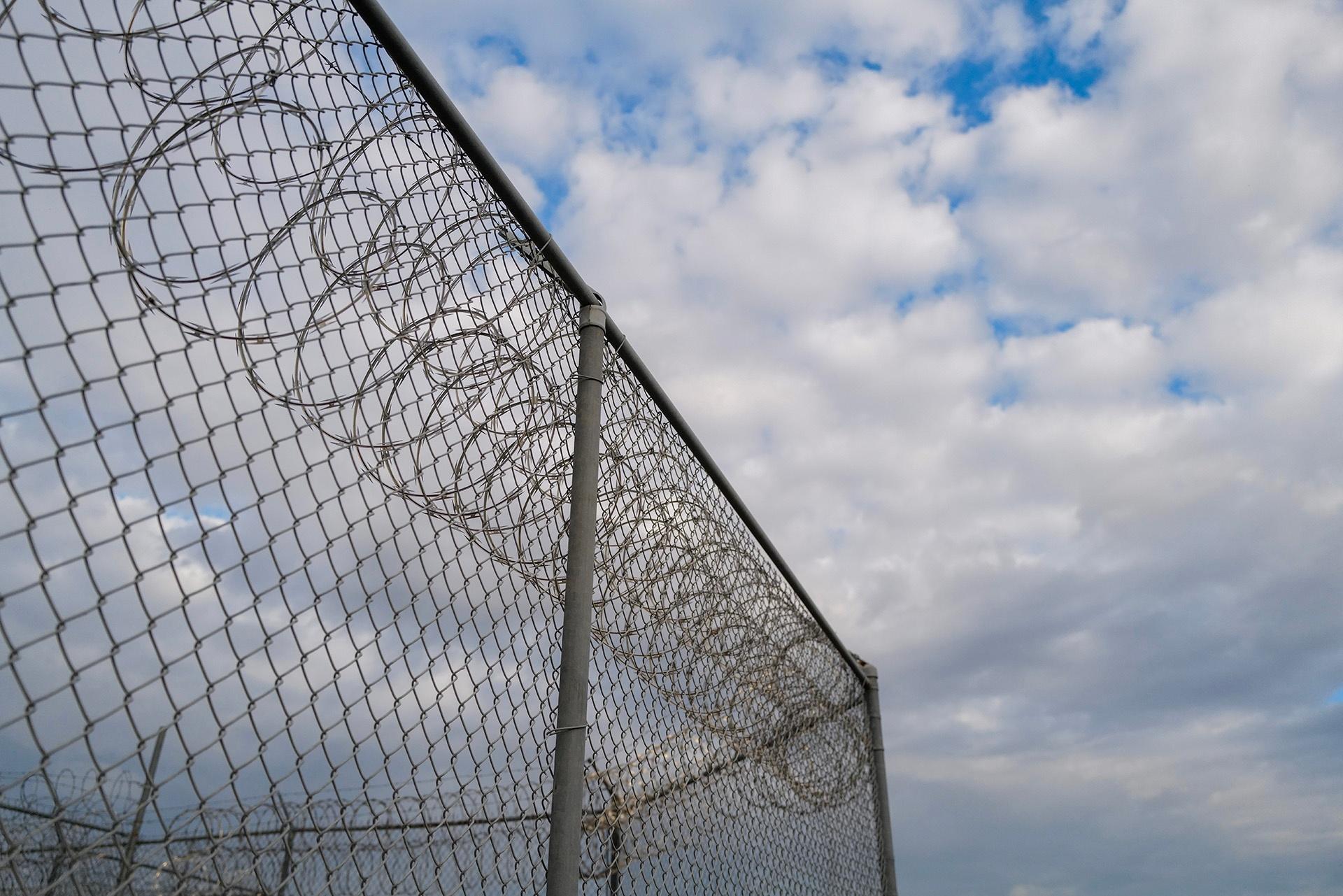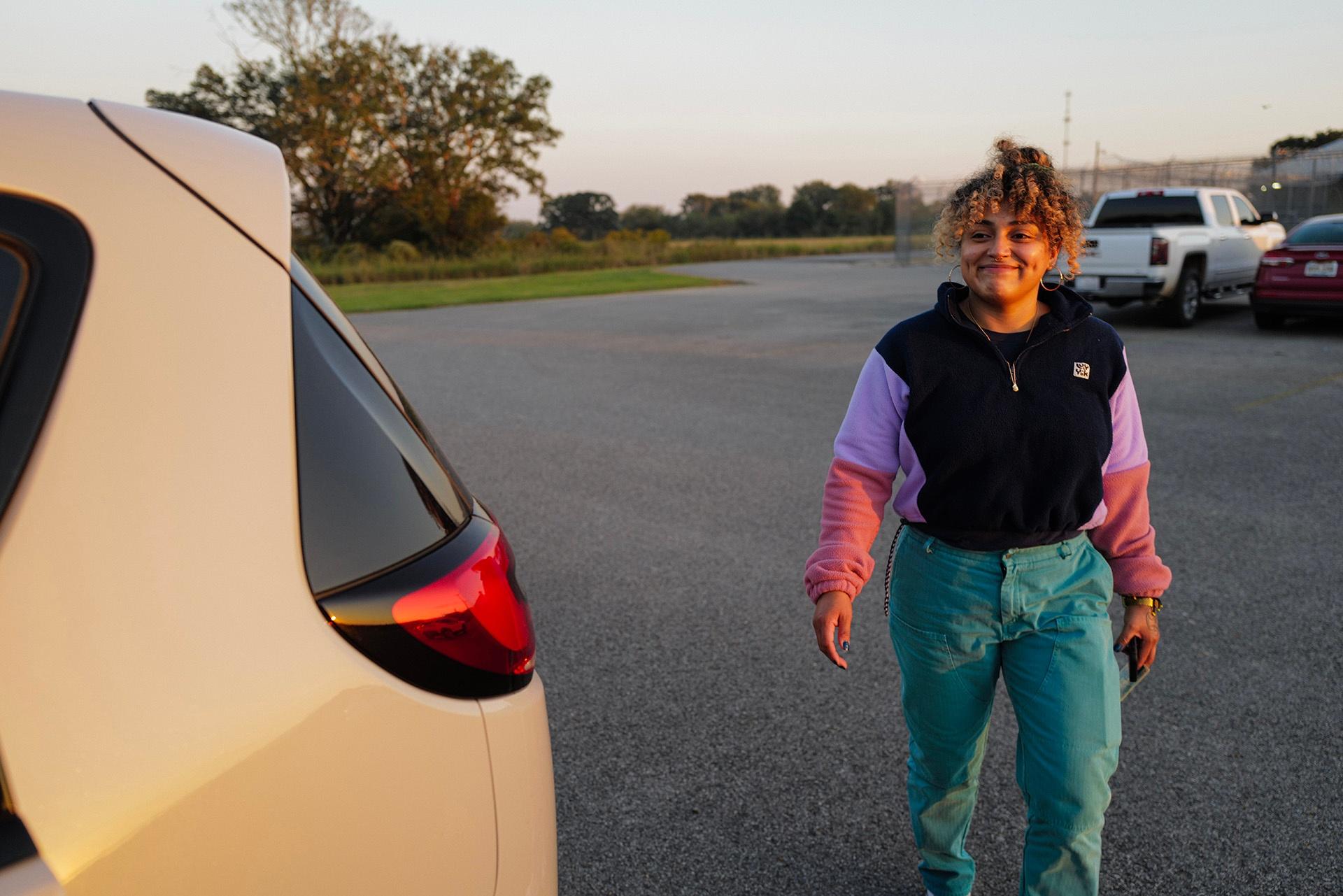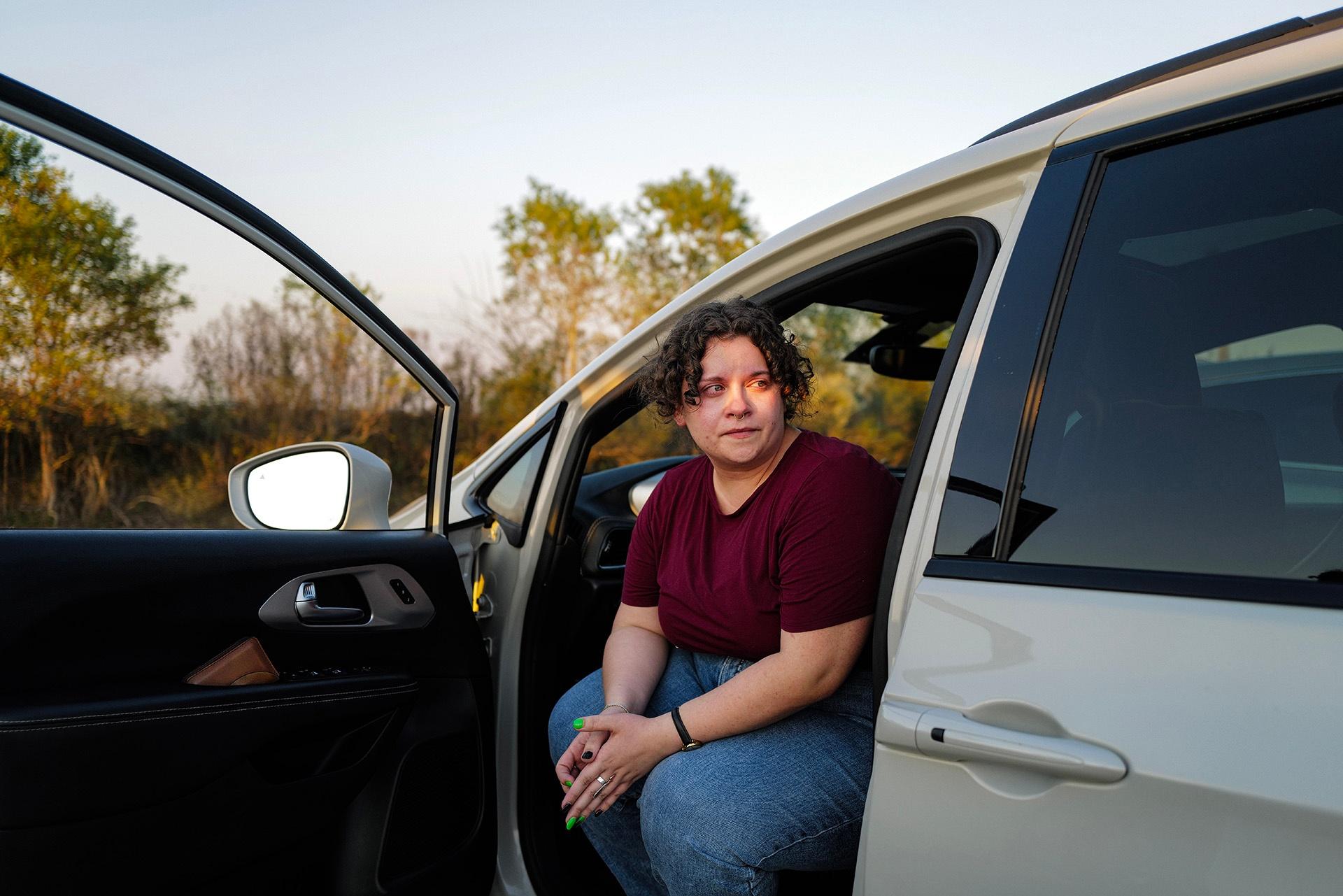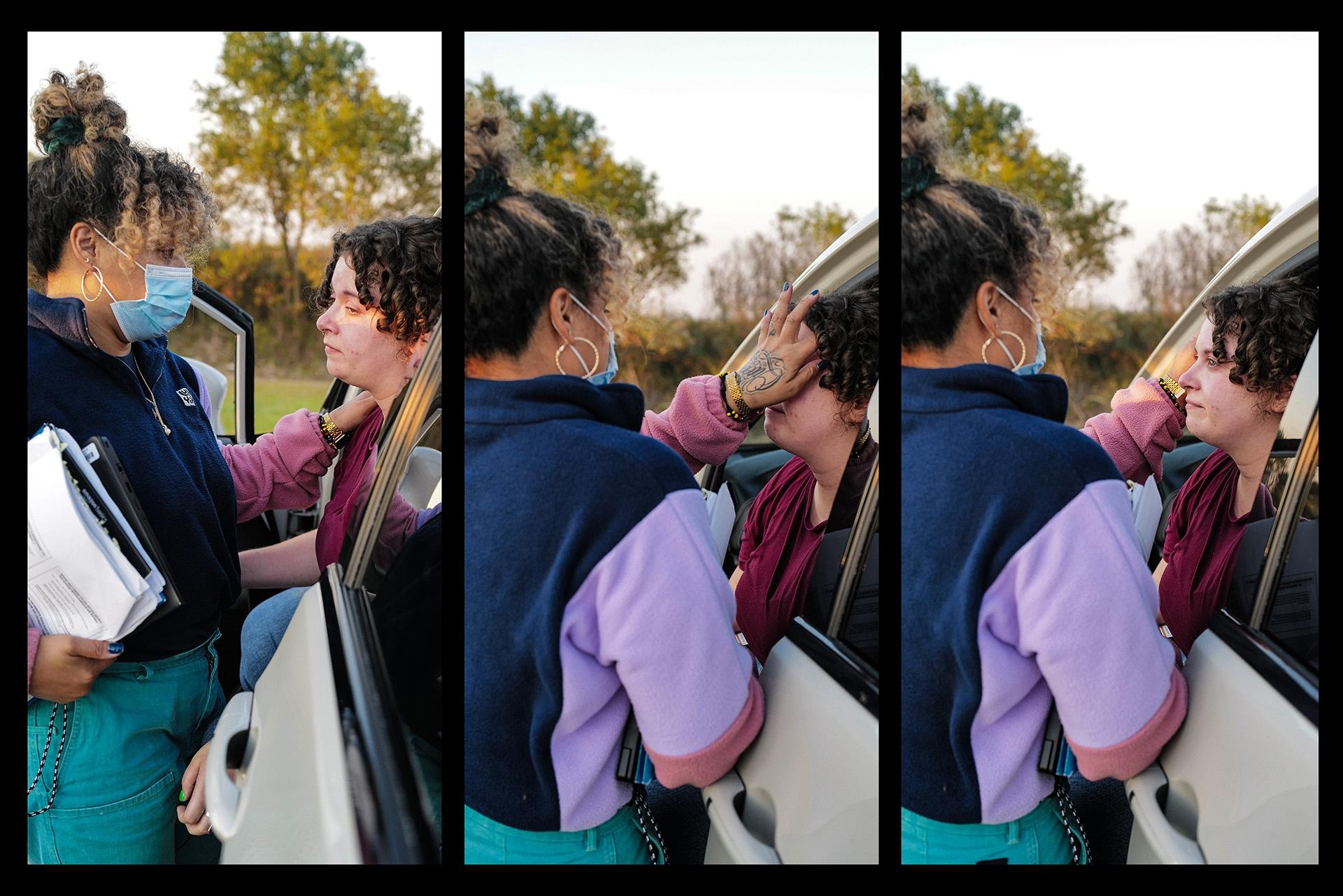In the mornings during the week-long trips to the detention centers, Tania Wolf tries to ground herself in routine. From her hotel room, she makes Quaker Oats instant oatmeal the way she likes it — half bottled water, half oat milk, a sprinkle of pecans and dried nuts. She also brings along her own pour-over coffee maker.
This is how she resets for another day of listening to immigrants in detention tell her how they want to get out of the prison-like facilities where they’re housed, about the lack of sufficient food inside them, about the medical care they’re not receiving. It gets to her.
“I think in the moment, you're just kind of go, go, go. And just trying to get them the information, listen to their stories — because nobody's listening to them,” Wolf said. “And then — once there's quiet, once everything settles — in the hotel room is, when I start just feeling it and remembering the things they told me.”
Wolf is a bilingual administrative assistant for the Southern Poverty Law Center’s Southeast Immigrant Freedom Initiative, or SIFI. A child of immigrants from Ecuador and Colombia, she speaks Spanish fluently. Her co-worker, Hannah Lopez, describes her as someone people want to open up to. Inside the detention centers, she becomes a vessel for immigrants’ stories.
“For me, the stories sometimes resonate with my own family history,” Wolf said. “So, my cousin was a police officer in a small town in Colombia, and he was killed by the guerilla. But these are the stories that I'm hearing from people. These are my people”
Inside the South Louisiana ICE Processing Center, a women’s facility in Basile, two older women with the same name befriend her.
“They were like, ‘We steal food sometimes,’” Wolf said. “I was like, ‘I don’t think it’s stealing at this point.’”
Wolf is young but she feels she’s been doing this work her whole life. She even worked for an immigration attorney in New York City when she was in university.
“Even as a young kid just helping my dad study for his citizenship test,” she said. “I have family members who are undocumented, and when I was doing that job, my mom asked if I could ask the attorney to help my family members with some cases, and I did. And to this day, I haven't been able to help them. So, I think I continue to do this work just because … it’s my life. It’s my community. It’s my family.”
